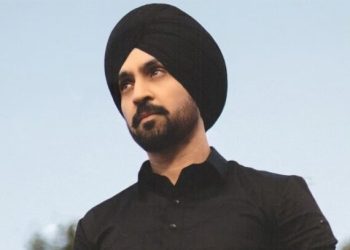By Mukesh Kumar Singh
I am a cow. That is my name. My existence predates human beings and humanity itself. Nature gave me a place in the animal kingdom. I became a part of the vertebrate, mammal, and herbivorous quadruped family. I have witnessed humans since the time they were primitive, roaming the jungles, naked, and surviving on small hunts. As human intelligence evolved, they created tools, learned agriculture, and established families and societies.
My gentleness and serene nature attracted humans as they became more civilized. They recognized my temperament and simplicity. They brought me into their homes, and I, being docile, went along. While the forest provided ample food, the constant threat of predators made survival a challenge. Thus, living with humans seemed like a good decision. This marked my transformation from a wild animal to a domesticated creature. In return for food and protection, I provided humans with milk, bullocks, dung, and more.
By the Rigvedic period (6000 BCE), my bovine kind had become central to human economies. I was seen as a symbol of prosperity. The Aryans, who lived between present-day Afghanistan and Punjab, worshipped natural forces like Indra, Varuna, and Agni. At this stage, deities like Brahma, Vishnu, and Mahesh were not yet conceptualized, nor were elaborate rituals a norm. Society was tribal, with military values at its core. Kingship was hereditary, but rulers could be replaced by their people. The caste system was based on profession, not birth, and women enjoyed rights to education, marriage, and independence. Widows could remarry, and inter-caste unions were common. During this time, beef consumption was not forbidden, but cows were only slaughtered when they were old or unable to produce milk.
As humanity evolved further in the Later Vedic period (4000 BCE), so did my role. By now, scriptures like the Puranas and Upanishads were written, and deities like Ram and Krishna had become central figures. The caste system shifted from being profession-based to birth-based, and Brahminical traditions began to dominate. The sanctity of cows started being tied to religious rituals, reflecting my growing significance in faith and economy.
Buddha and Mahavira later emerged to challenge the rigid Brahminical traditions. They preached compassion and non-violence, further solidifying my position as a sacred being. Beef consumption was discouraged not just for religious reasons but to underscore my economic importance.
During India’s Muslim rule, beef was neither strictly good nor bad but began to acquire religious overtones. With the advent of Mughal rulers, efforts were made to connect cow protection with Hindu religious identity. Muslims, however, domesticated buffaloes, which produced more milk and could fend off predators better. Yet, my status remained superior due to my religious significance.
By the Mughal era, opposition to cow slaughter gained momentum among certain Brahmin groups. These groups used cow protection as a means to consolidate social influence, even as many Brahmins continued consuming meat. Meanwhile, India’s agricultural economy thrived, with me and my kind at its center, making India a major contributor to the global economy.
The arrival of the British drastically changed our fate. They promoted cow slaughter to disrupt India’s socio-economic structure. By the time the British left, cow slaughter became both a legal and communal issue. Laws against it were introduced in many states, but illegal trafficking and slaughterhouses flourished, exploiting me as a communal symbol.
Today, I am no longer the cornerstone of prosperity or energy. Instead, I am a token of hollow reverence. While revered as sacred, my treatment is often neglectful and cruel. When I am productive, humans care for me, but as age catches up, I am abandoned to fend for myself. I roam streets, scavenging garbage, consuming plastic, and leading a life of misery.
The plight of old cows like me is one of the worst among living beings. Religious leaders and society remain indifferent to our suffering, preoccupied with their conflicts and hypocrisies. Will humans ever understand the irony of worshipping us while treating us so inhumanely?
(The author is an independent commentator. These are his personal views.)






